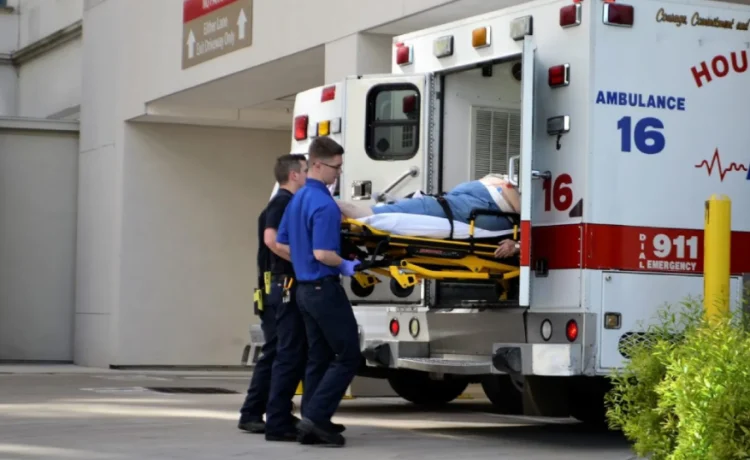One of the most pressing concerns after a car accident is who is responsible for paying your medical bills. The medical treatment you need to recover from injuries, especially in serious crashes, can quickly add up to thousands—if not tens of thousands—of dollars. Understanding how to manage these bills is essential to your financial and physical recovery.
If you’ve been injured in a car accident in Boise, Idaho, this blog will walk you through the process of handling medical bills and explain the role of insurance companies, medical providers, and your attorney in ensuring you receive the care you need without breaking the bank.
1. Idaho’s Fault-Based Insurance System
Idaho follows a fault-based insurance system, which means the driver who caused the accident is typically responsible for paying for the damages, including your medical bills. If the other driver was at fault, their liability insurance should cover your injuries and related medical expenses.
However, the process isn’t always simple. The other driver’s insurance company may try to minimize their payout, and it can take time to get the full compensation you deserve.
If you have health insurance, it may cover your medical expenses upfront while your personal injury claim is being resolved. But ultimately, if the other driver is found to be at fault, their insurance should cover these expenses.
2. Your Health Insurance
If you have health insurance, it’s likely that your health insurance company will pay your medical bills as they come due. However, this doesn’t mean your medical bills are paid in full right away. Here’s what you need to know:
Co-pays and Deductibles
Even with health insurance, you may still have to pay co-pays, deductibles, or out-of-pocket costs, depending on your policy. If you’re injured in a car accident, this means you could be out of pocket even if you’re using your insurance.
Subrogation
Your health insurance company might try to recover the money they paid for your medical bills by pursuing the at-fault driver’s insurance. This is called subrogation. In other words, while your health insurer will cover your medical costs initially, they may seek reimbursement once you receive a settlement from the at-fault party’s insurance.
Tip: Make sure to inform your health insurance provider about the car accident to avoid issues later on.
3. PIP Insurance (Personal Injury Protection)
In Idaho, Personal Injury Protection (PIP) coverage is not mandatory, but it can be an optional add-on to your auto insurance policy. If you have PIP insurance, it may cover your medical bills regardless of who was at fault in the accident.
PIP typically covers things like:
-
Medical bills (emergency care, surgery, physical therapy, etc.)
-
Lost wages due to missed work
-
Other related expenses like travel to doctor appointments
It’s important to check your policy to see what type of PIP coverage you have. Even if the other driver is at fault, PIP can help pay for immediate medical treatment without delay.
4. The Other Driver’s Insurance
If the other driver is at fault for the accident, their liability insurance should cover your medical bills. However, there are a few factors to consider:
-
Insurance limits: Idaho’s minimum car insurance requirements are $25,000 per person for injuries and $50,000 per accident for multiple injuries. If your medical bills exceed these limits, you may need to pursue additional compensation or file a lawsuit to recover the full amount.
-
Uninsured/Underinsured Motorist Coverage: If the at-fault driver doesn’t have insurance or doesn’t have enough to cover your medical costs, uninsured or underinsured motorist coverage (UM/UIM) on your own policy may help fill the gap.
Tip: If the other driver’s insurance denies your claim or offers an insufficient settlement, you may need to speak with an attorney to explore legal options.
5. Medicaid or Medicare
If you have Medicaid or Medicare, these programs may cover some of your medical expenses after a car accident. However, they typically have limits on what they will cover, and you might have to pay a portion of the costs yourself.
Just like with health insurance, Medicaid and Medicare may also have a right to subrogation—meaning they can claim reimbursement for the expenses they paid once you settle your case.
Tip: If you have Medicaid or Medicare, let your attorney know, as they can help navigate the reimbursement process and ensure the best outcome for you.
6. The Role of Your Car Accident Lawyer
A Boise car accident lawyer can help ensure you don’t pay for medical bills out of pocket when you’re entitled to compensation. Here’s how an attorney can help:
-
Communicating with insurers: Your lawyer will handle the difficult task of negotiating with insurance companies to ensure you get the compensation you deserve. They will fight to ensure that the at-fault driver’s insurance covers your medical bills, pain and suffering, and other damages.
-
Lien negotiations: If your health insurer or other entities place liens on your settlement (seeking repayment for bills they paid), your attorney will help negotiate these liens, reducing the amount you owe and increasing your recovery.
-
Advocacy and representation: If insurance companies aren’t providing fair compensation or if you are being denied coverage, your lawyer can file a lawsuit and represent you in court to ensure that justice is served.
7. What Happens If You Can’t Afford Treatment?
If you’re unable to pay for medical treatment while you’re waiting for your settlement, talk to your healthcare provider about payment plans or ask them to wait for payment until your case is resolved. Many doctors and hospitals will work with accident victims on this.
In some cases, medical lien agreements can be put in place. This means your medical providers will wait to be paid until after your case is settled or won.
Final Thoughts
Navigating medical bills after a car accident can be one of the most stressful parts of the recovery process, but you don’t have to do it alone. By working with a skilled car accident attorney, you can ensure that the financial burden of your medical expenses is handled properly—whether through the at-fault driver’s insurance, your own insurance, or other avenues.
We recommend boise car accident lawyer.















